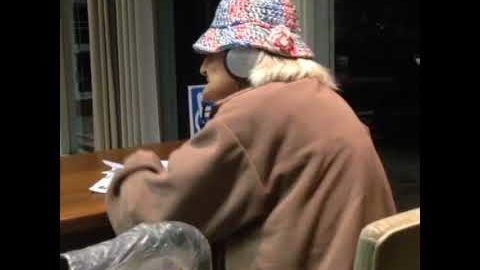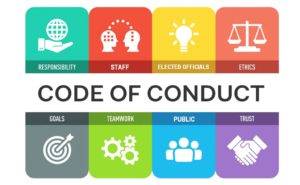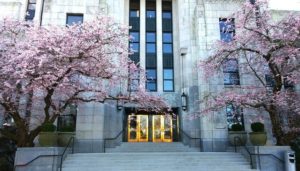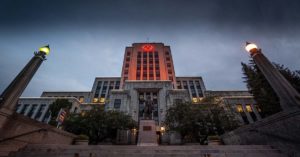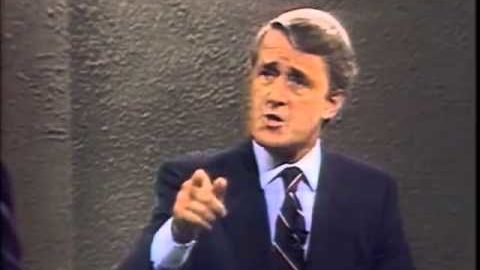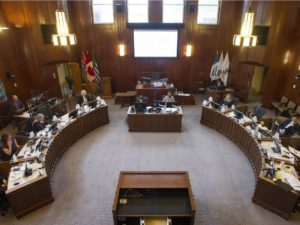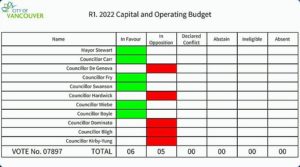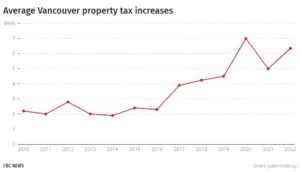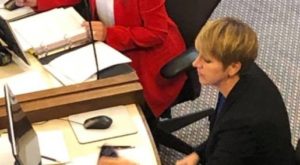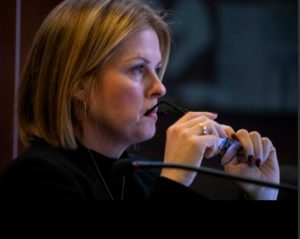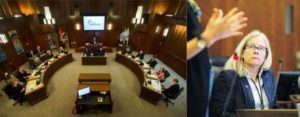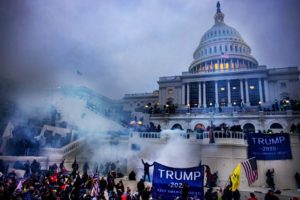
Over the course of the past six months, British Columbians have experienced a heat dome in late June that saw temperatures rise above 40° Celsius for more than a week, a summer wildfire season that saw the Interior town of Lytton burn to the ground, an autumn season of previously unheard of atmospheric rivers that flooded large areas of the Fraser Valley, and towns along the Thompson River that destroyed the town of Merritt, only to be followed by a winter season of record low temperatures and more snow across the province than experienced ever before.
And, at least for those of us who reside in British Columbia — where climatologists predict ever-worsening summer heat domes and wildfire seasons, ever more autumnal atmospheric rivers and even more devastating winter seasons of record low temperatures across the province — you’d be left to think that our present climate emergency is the worst of the problems facing us going into the future.
But you’d be wrong.
In point of fact, even more devastation is on the near horizon, this time social, political and economic, as well as climate-based, given what we are witnessing on a daily basis in the country just south of the Canadian border, in the United States.
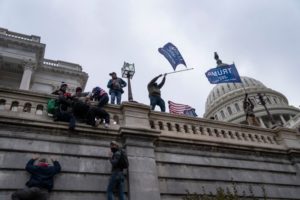
Today marks the one-year anniversary of the insurrection that shook the very foundation of American democracy, the brief but devastating takeover of the halls of power of the American government forcing members of Congress, the Senate, and the Vice-President of the United States into hiding to protect their very lives.
 Thomas Homer-Dixon, Canadian political scientist and author of the recently published Globe and Mail article, ‘The American polity is cracked, and might collapse. Canada must prepare’.
Thomas Homer-Dixon, Canadian political scientist and author of the recently published Globe and Mail article, ‘The American polity is cracked, and might collapse. Canada must prepare’.
The United States could be under a right wing dictatorship by 2030, Canadian political science professor Thomas Homer-Dixon has warned, urging our country to protect itself against the “collapse of American democracy”.
“We mustn’t dismiss these possibilities just because they seem ludicrous or too horrible to imagine,” says Homer-Dixon, founding director of British Columbia’s Cascade Institute at Royal Roads University, in an article published recently in the Globe and Mail.
“In 2014, the suggestion that Donald Trump would become President would also have struck nearly everyone as absurd. But today we live in a world where the absurd regularly becomes real and the horrible commonplace.”
Homer-Dixon’s message is blunt: “By 2025, American democracy could collapse, causing extreme domestic political instability, including widespread civil violence. By 2030, if not sooner, the country could be governed by a right wing dictatorship.”
The author’s prediction centres on a Trump return to the White House in 2024, including Republican-held state legislatures refusing to accept a Democratic win.
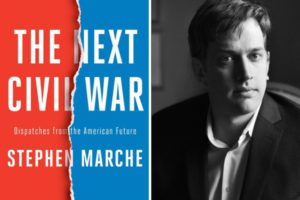
“It’s not a matter of if but when: A civil war is on the way, as the United States is coming to an end,” writes Toronto-based historian Stephen Marche, in his new book, The Next Civil War: Dispatches from the American Future.
Marche observes that the United States is riven by a sectarian conflict that cannot help but end, at some point, in violence. By his projections, the inevitable civil war will be uncommonly vicious, pitting neighbour against neighbour. “It’s not just Donald Trump’s fault, though he certainly did his best to sow hatred and division,” writes Marche, noting that Trump was right when he said, “This country was seriously divided before I got here.”

Marche posits a number of scenarios around which a civil war could emerge: the assassination of a President; the seizure by local authorities of a bridge condemned as unsafe by federal officials, drawing militias from afar into armed conflict with the Army; a campaign of terror initiated by anti-government patriots, with dirty bombs less lethal than panic-inducing, countered by a government that will suspend First and Second Amendment rights to contain the violence.
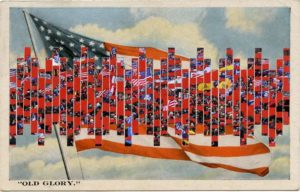
In all of the above scenarios, the fuel is the deep chasm between two visions of America, one multi-ethnic, the other White supremacist. This chasm is full of antipathy and venom. “Hatred drives politics in the U.S. more than any other consideration,” Marche writes, and in the America of today, the middle ground has disappeared. What is to be done? Marche proposes a radical solution: Allow the South to break away into a largely impoverished theocracy, grant prosperous California and Texas their own nationhood, and let the rest of the country form a flourishing, wealthy blue-state democracy. “Disunion would be the death of one country,” he writes, “but it would be the birth of four others.” For other possible remedies, after reading Marche’s new book, start with Barbara F. Walter’s How Civil Wars Start.

A terrible storm is coming from the south, writes Homer-Dixon, and Canada is woefully unprepared. Over the past two years as Canada has turned its attention inward, distracted by the challenges of COVID-19, reconciliation, and the accelerating effects of climate change, while just below the 49th parallel the unraveling of a long cherished American democracy portends a threat to the American citizenry, and an even greater threat for Canadians across every part of our country.
“If Donald Trump is re-elected President in 2024, even under the most-optimistic of scenarios the economic and political risks to Canada would be innumerable,” writes Homer-Dixon. “Driven by aggressive, reactive nationalism, Mr. Trump or one of his acolytes who could go on to win the American Presidency could isolate Canada continentally.”
“Under the less-optimistic scenarios, the risks to our country in their cumulative effect could easily be existential, far greater than any in our federation’s history. What happens, for instance, if high-profile political refugees fleeing persecution arrive in our country and the U.S. regime demands them back. Do we comply?”
“Trump and a host of acolytes and wannabes such as Fox News’ Tucker Carlson and Georgia representative Marjorie Taylor Greene, have transformed the Republican party into a near-fascist personality cult that’s a perfect instrument for wrecking democracy,” writes Homer-Dixon.
“Worse,” he writes, “Donald Trump may be just a warm-up act.”
“Returning to office, he’ll be the wrecking ball that demolishes democracy but the process will produce a political and social shambles,” writes Homer-Dixon. “Still, through targeted harassment and dismissal, he’ll be able to thin the ranks of his movement’s opponents within the state, the bureaucrats, officials and technocrats who oversee the non-partisan functioning of core institutions and abide by the rule of law.”
“Then the stage will be set for a more managerially competent ruler, after Mr. Trump, to bring order to the chaos he’s created.”
The consequences of the breakdown of the American system is only now beginning to be felt. January 6 wasn’t a wake-up call; it was a rallying cry. The Capitol police have seen threats against members of Congress increase by 107%. Death threats have become a standard aspect of the work life of every elected official. A third of poll workers in the U.S., in the aftermath of 2020, said they felt unsafe.
The United States has burned before. The Vietnam war, civil rights protests, the assassination of JFK and MLK, Watergate — all American national tragedies which remain in living memory. But the United States has never faced an institutional crisis quite like the one it is facing now. With most on the American right having abandoned faith in government, their politics is, increasingly, the politics of the gun.

The American right is preparing for a breakdown of law and order, but they are also overtaking the forces of law and order. Hard right organizations have now infiltrated so many police forces — the connections number in the hundreds — that they have become unreliable allies in the struggle against domestic terrorism. Anti-government patriots have used the reaction against Black Lives Matter effectively to build a base of support within law enforcement.
At this moment in the American crisis, the left has divided into warring factions seemingly incapable of confronting the seriousness of the moment. There are liberals who retain an unjustifiable faith that their institutions can save them when it is increasingly clear that they cannot. Then there are the educational and political elites dedicated to a discourse of willed impotence, not unlike pre-WWII America.
The right has recognized what the left has not: that the system is in collapse. The right has a plan: it involves violence and solidarity. They have not even repudiated the Oath Keepers. The left, meanwhile, has chosen infighting as their sport.
The United States must recover its revolutionary spirit. Does the country have the humility to acknowledge that its old orders no longer work? Does it have the courage to begin again? As it managed so spectacularly at the birth of its nationhood, during the Civil War of the 1860s, and again in 1932 with the election of Franklin Delano Roosevelt as President, the United States requires the boldness to invent a new politics for a new era. It is entirely possible that it might do so.
America is, after all, a country devoted to reinvention.


